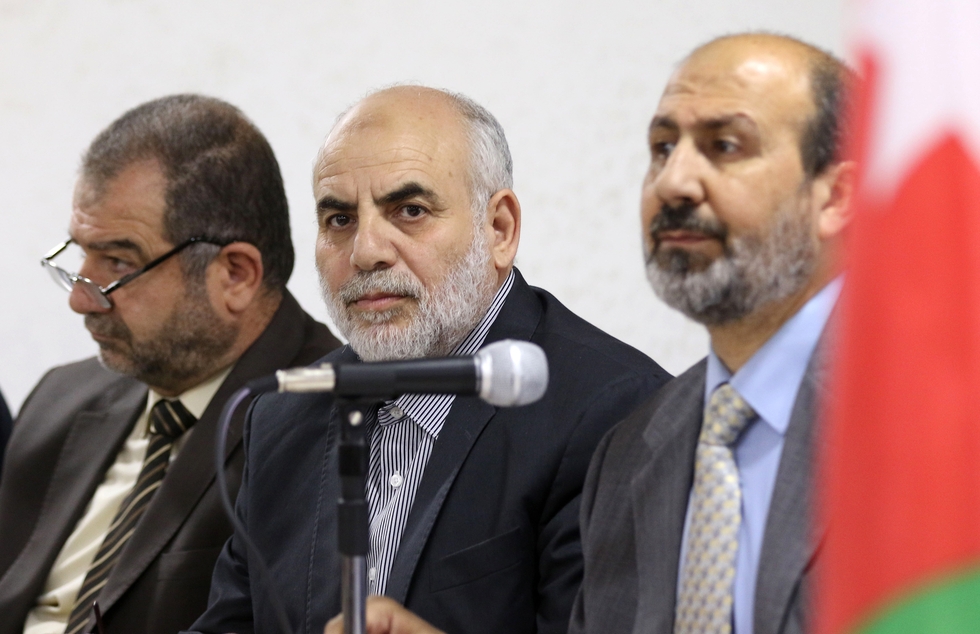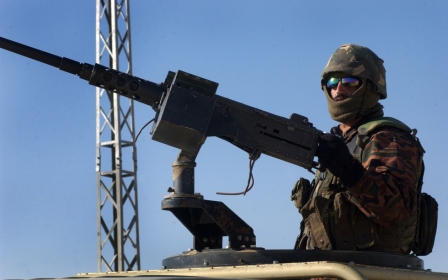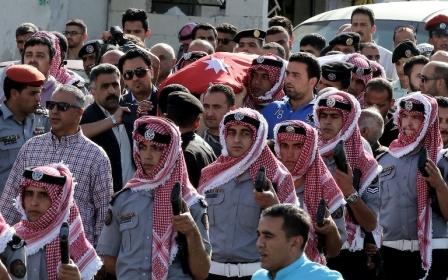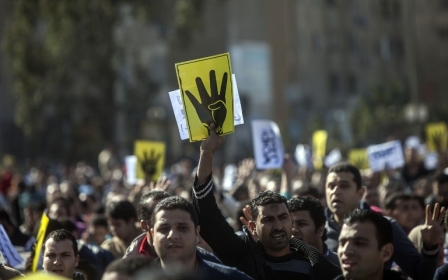ANALYSIS: Jordan’s Muslim Brotherhood comes in from the cold

AMMAN - The Islamic Action Front (IAF), the political wing of Jordan’s Muslim Brotherhood, announced on 11 June that the group would compete in the 20 September parliamentary elections.
The IAF’s participation stands in contrast to the group’s boycotting of the previous two consecutive races in 2013 and 2010. Zaki Bani Rhaid, the Brotherhood’s deputy leader, justified the party’s refusal to participate in the 2013 elections by noting “the regime has failed to meet reform demands by Jordanians, including the Islamist movement”.
In an interview with Middle East Eye, IAF Spokesman Murad Adaileh admitted that the levels of democracy have receded in the country while critiquing the lack of adequate political reform. Constitutional amendments ratified just two months ago granted King Abdullah dramatically more powers over the security forces. The government has continued arresting activists, most notably the 14 June detainment of Amjad Qourshah for criticising Jordan’s war against the Islamic State (IS) group, and this has intensified the Brotherhood’s distrust of the government.
Therefore, if the IAF believes that political liberties have not significantly improved: what has prompted the Brotherhood’s policy reversal?
Poll approval, staging events and reaching out to new supporters
Adaileh explained that the leadership followed its members’ demands when crafting the policy. He cited an internal poll revealing that 76 percent of party members supported competing in the upcoming election. The IAF Spokesman added that the Islamist movement has a responsibility to participate in elections to help address the grave economic and political challenges facing the Hashemite Kingdom.
But independent analysts say the government crackdown on the Brotherhood played a significant role in pushing the group to end its parliamentary election boycott. In April, security officials shut down the Brotherhood’s offices throughout the country including in Amman, Jerash and Madaba. The government banned the group from holding its 70-year anniversary rally in April 2015.
Oraib Rantawi, director of the Amman-based Quds Center for Political Studies, told MEE that the IAF “reached the conclusion that if they join the parliament and succeed to create a serious parliamentary bloc, this will revive their legitimacy again and empower them to confront this anti-Muslim Brotherhood campaign across the country”.
While no public polling exists on the movement’s strength, the New York Times wrote that approximately 25 percent of Jordanians support the Brotherhood.
Elections also allow the IAF to organise numerous public events with their base while reaching out to new supporters, a practice that has been severely limited given the recent government restrictions. Underlining the difficult atmosphere for the IAF, Rantawi said the Interior Ministry even refused to grant a permit for his independent think tank to hold an academic conference on the Brotherhood’s future in Jordan.
In addition to government pressure, the IAF faces challenges within the Islamist movement that have led them to reassess their decision.
Rantawi said, “Now the Muslim Brotherhood is in a very weak situation. They are divided and have a serious internal problem.”
Brotherhood members have split off from the mother organisation to launch the Zamzam initiative, which aims to emphasise the movement’s Jordanian identity and promote better relations with government authorities. In March 2015, Amman recognised the new group led by Abdul Majid Thneibat as the country’s official Muslim Brotherhood. Furthermore, last December, 400 Brotherhood members - including former IAF Secretary General Hamzeh Mansour - resigned from the party over disagreements with the Brotherhood’s leadership.
Joas Wagermakers, Professor of Islamic studies at Utrecht University, said if the IAF were to again boycott elections given the internal discord within the movement and the government repression, “the [original] Muslim Brotherhood would have probably disappeared into complete obscurity”.
Finally, regional developments have pushed the IAF to adopt a more flexible policy. With Islamist parties successfully competing in elections in Tunisia and Morocco, Rantawi noted that Jordan’s Brotherhood looks to follow the path taken in North African countries. In contrast, the more aggressive attitude in Egypt between the Brotherhood and President Abdel Fatah al-Sisi has not proven fruitful.
'Victory for the government'
Former Brotherhood leader Salem Falahat told MEE that the organisation’s participation in the upcoming elections is a victory for the government. In 2010, Prime Minister Samir Rifai tried persuading the IAF to compete in the parliamentary race and increase the voter turnout throughout the Hashemite Kingdom.
Farahat noted that the Jordanian government is interested in showcasing the country’s democratic achievements to the West in order to increase international financial assistance. With Amman’s largest and most organised political opposition - the Brotherhood - now participating, the country’s electoral process is legitimised, despite the growing restrictions.
Yet even with majority support within the organisation for competing in elections, some opposition remains. A vote in the IAF’s Shura council revealed that 17 percent of members present did not support participating in the 20 September race. Wagermakers said this group likely would insist on substantial reforms limiting the King’s constitutional powers while increasing parliament’s independence before backing the Brotherhood’s participation in elections.
In the historic 1989 elections, the Brotherhood and its allies won about one-third of the contested seats and became the largest parliamentary bloc.
Nonetheless, analysts cautioned that in this year’s race the results would be more modest for the Islamic party. The government restrictions and internal disputes will likely reduce the IAF’s popularity. Farahat explained that the Brotherhood would only secure - in the ideal situation – 10 percent of the 130 seats because of ongoing problems with the country’s election law. Rural areas still receive disproportionately high representation while Amman’s seats, where many Brotherhood supporters are located, are reduced.
After the IAF refused to compete in the January 2013 parliamentary elections, King Abdullah called the Muslim Brotherhood a “Masonic cult… run by wolves in sheep’s clothing” in an Atlantic interview. Security forces then cracked down on the Brotherhood by closing the group’s offices and jailing its deputy leader for a year because he wrote a Facebook post critiquing the UAE.
Jordanian government officials have consistently tried to persuade opposition parties to end their electoral boycott. With the Brotherhood now accepting a moderate position by participating in the September race and legitimising the elections, the question remains - will Jordanian leaders respond with a more conciliatory approach to the country’s largest Islamic movement?
This article is available in French on Middle East Eye French edition.
New MEE newsletter: Jerusalem Dispatch
Sign up to get the latest insights and analysis on Israel-Palestine, alongside Turkey Unpacked and other MEE newsletters
Middle East Eye delivers independent and unrivalled coverage and analysis of the Middle East, North Africa and beyond. To learn more about republishing this content and the associated fees, please fill out this form. More about MEE can be found here.




